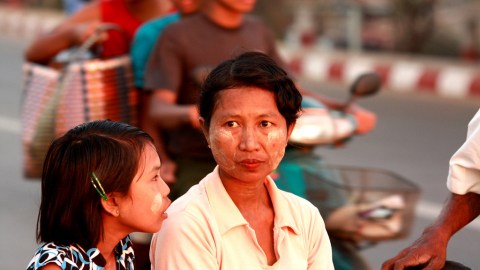Asia’s Next Economic Frontier

What is the Big Idea?
While the world was celebrating Nobel prize winner Aung San Suu Kyi’s party’s victory in Sunday’s special elections in Myanmar, a new currency exchange rate went into effect.
Effective April 1, the exchange rate is now at 818 kyat to the dollar and the country is “changing at breakneck speed, politically and economically,” according to Die Welt.
Read the full story in English or German.
What is the Significance?
Myanmar is changing to a more open, market-based economy and it is having an resounding effect on the region.
“The opening up of Myanmar marks a turning point. It was the missing link in a chain that needed all its links for the dream of a high-growth region along the Mekong to be realized,” says Hak Bin Chua of Bank of America Merrill Lynch. One development relevant to that prospect is the deep-water port project in Dawei, which lies at about the same latitude as Bangkok.
Another project in early planning stages is the construction of a road that will link Myanmar via Bangkok and Cambodia to Ho Chi Minh City in Vietnam. Another road is in the works further north from Rangoon to Hue.
The northern part of Myanmar that borders the southern Chinese growth regions will also be the focus of new transportation projects with Indochina. When the U.S. and the E.U. lift sanctions against Myanmar, which everyone expects to happen, these will become crucial.
“The country’s potential is huge, particularly if one considers that even with the sanctions the economy grew 5.5% in the last year. With its population of 60 million, Myanmar could become a second regional powerhouse after Thailand with its population of around 70 million,” said Die Welt.
The end of the economic sanctions will also mean an increase in capital from foreign investors. Currently, most money flows from China. The end of the sanctions will reduce Myanmar’s dependency on its neighbor.
To attract investors, other reforms are in the works. Among other changes, foreigners would no longer need a local partner to set up a business or lease land. Investors would be exempted from paying taxes for up to five years. Property protection guarantees are also being promised.
Myanmar is also rich in oil, gas, wood and precious gems. Tourism is also expected to experience a significant boom.




